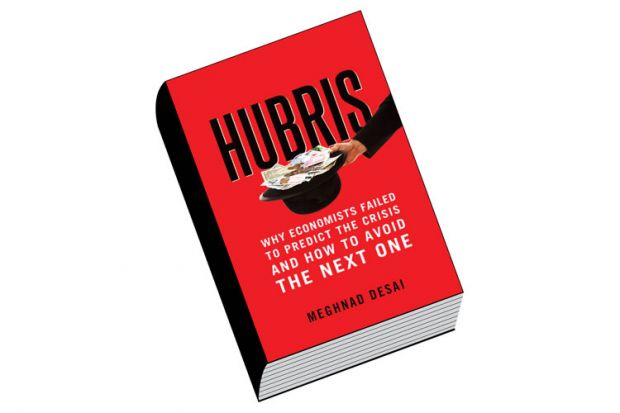A guided and highly readable tour of economic thinking from Adam Smith and Karl Marx to John Maynard Keynes and Milton Friedman, this book sets out to emphasise the importance of economic history in our understanding of the economic crisis of 2008 and its aftermath. Meghnad Desai, the economist and Labour peer, shows that for much of the past two centuries, economic theory has been built around the idea that, with a hands-off state, economies have an inbuilt tendency to equilibrium and steadiness.
This optimistic theory of capitalism, dominant up until the Wall Street Crash of 1929, was to be superseded by Keynesianism’s view that economies have, in fact, a strong tendency to be all too easily blown off course. Anathema to the classical theorists, Keynes showed that government intervention was essential to stability. It took the global crisis of the 1970s – and the apparent failure of Keynesianism to tackle stagflation – for the old model, revised and embellished with the help of advanced mathematics, to triumph once again. For the past 40 years, pro-market theory, applied by deregulation and weak economic management, has become the new orthodoxy.
For a while it seemed that the prophets of the new pro-market classical economics had been proved right. From the mid-1990s, much of the globe enjoyed a decade of sustained growth and falling unemployment – the Great Moderation, as it was known. It was this apparent success that helps to explain the hubris of the years up to 2007, and, as Desai expands in this book’s subtitle, why economists failed to predict that anything like a crash was coming. Crises had simply been written out of the script.
Far from being finally tamed, as much of the economics profession liked to boast, boom and bust was just on hold for a while. As Desai argues, the idea of automatic equilibrium is a dangerous delusion. Disequilibrium, not equilibrium, is the natural order. “Capitalism is a dynamic system but it works through creating cycles and crises. It is a disequilibrium system.” In seeking an explanation for the post-2008 crisis, Desai turns to “long wave” theories, such as the one developed in the 1920s by the Russian economist Nikolai Kondratieff, that predict periodic turbulence rather than equilibrium. He suggests that 2008 was at the tail end of the upswing phase of a 40-year-long Kondratieff cycle that began with a downswing lasting from the early 1970s to the early 1990s.
This cycle coincided with a shift in the “struggle between capital and labor for income shares” – another source of instability – with economies moving from the crisis of profitability in the 1970s to a crisis of wages from the late 1980s, the latter the direct result of the triumph of the pro-market school. Together, these two cycles, intensified in their impact by acceleration in the rate of globalisation, imposed the shocks that took us over the cliff in 2008. The highly sophisticated but oversimplified models built by the new equilibrium theorists simply ignored these factors.
There is one significant gap in Desai’s grand tour of rival theories, that of the late American heterodox economist Hyman Minsky. Minsky, who died in 1996, had with some prescience warned that the deregulated financial markets introduced in the 1980s would intensify the scale of economic instability, and it is a theory about the post-2008 crisis that has, belatedly, come to be widely endorsed. Nevertheless, Desai is right to restate the importance of natural turbulence and its causes. The accuracy of his somewhat pessimistic conclusion – that the world is at the beginning of a new long wave downturn – remains to be seen.
Stewart Lansley is visiting fellow in the Townsend Centre for International Poverty Research, University of Bristol, and co-author, with Joanna Mack, of Breadline Britain: The Rise of Mass Poverty (2015).
Hubris: Why Economists Failed to Predict the Crisis and How to Avoid the Next One
By Meghnad Desai
Yale University Press, 304pp, £18.99
ISBN 9780300213546
Published 23 April 2015
Register to continue
Why register?
- Registration is free and only takes a moment
- Once registered, you can read 3 articles a month
- Sign up for our newsletter
Subscribe
Or subscribe for unlimited access to:
- Unlimited access to news, views, insights & reviews
- Digital editions
- Digital access to THE’s university and college rankings analysis
Already registered or a current subscriber?




